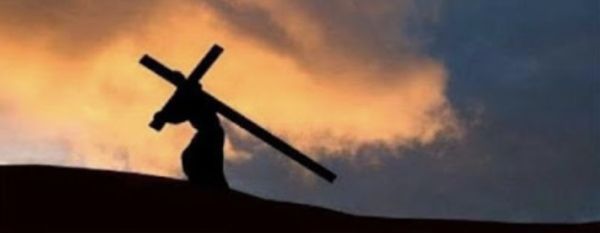What about established praise?
(Mt 11:20-24)
The new CEI [official Italian] translation makes it clear that Jesus' is not the Face of a capricious, manipulative God.
Whoever embarks on a journey of following in Christ experiences not 'miracles' [by lottery or territory], but 'Prodigies' (vv.20-21.23), Wonders of the Spirit working in the world and for all.
A cousin of mine who was a cloistered nun [once very close and in fact pre-conciliar - now more balanced] told me:
"We had such a closed and severe type of life that we saw Angels by force".
An unfounded visionary paroxysm, or one that abused the forces of the simple - of palliative self-healing, and only compensatory; one that wanders from the present and does not prepare the future.
There are those who look at the Lord with the eyes of the past, or with those of a preconceived, theoretical and sophisticated, unreal worldview.
Only the principle of Incarnation [which turns us upside down] expands horizons, even charismatic ones - and gives breath.
Here in the concrete, no one needs to reshape the narrows of the soul, taking refuge in do-it-yourself mysticism.
Our Oasis is paradoxical, and lies in the radical passions; in the concert of their flowering that germinates in a crescendo, and does not want to die out.
Because - although cruder than the homologised 'film' we witness outside ourselves - it is the inner world that pulsates, rich with interest.
So the withered quintessence wants to crack the surface of conditioning.
It speaks of a present that no longer nourishes us: too much in the head, too epidermic and distant, incomplete; without added value.
Whereas in the Spirit, the heart yearns incessantly to change colour. The interior is multifaceted, and it really moves.
Or else the inner malaise will write itself into the pursuit of religiosity-entertainment, into adherence to banners (even à la page), or similar contentions.
Starting not from the awareness of one's own resources and cosmic vitality, but from the knowledge and disciplines of others - strongly observant or abstract [ancient or all future] - we no longer have the codes to interpret the genius of time.
With blinders on, one cannot evaluate oneself, nor discover God's weave in history, nor even the not purely earthly dimension of his Gifts, everywhere extraordinary - even manifest in their bearing.
This is the only reward of the vocation: another vision and intelligence of oneself and of the whole world, which in an increasing rhythm regenerates - revives in the least established ways; not too directive.
It is no small thing to have Faith in the kingdom to come, instead of seeing it black; and to take on too many duties, with artificial fatigue.
Thus clinging to fantasies or paroxysms, old rhythms that are always the same or cerebral avant-gardism (perhaps under the illusion that it is they who guide or console us - even in the rebirth from the global crisis).
Believing only in customs or fashions of thought and taking them for granted does not avoid those mechanisms that cause us to go backwards.
So one would allow oneself to be ensnared in ties, and guided by calculations; to start one's personal journey not from one's own Name - but from some synthesis or science of others.
And adhere to mass idols, repeatedly come to easy and more comfortable compromise with local customs; so on.
The authentic praise is within us, and it is only of the Lord.
He is the One who turns to 'cities' perhaps considered enemy and evil, yet lacking the 'solid' convictions that would lock them into another kind of perversion.
Of such disorders our Core would inexorably take on - and such a root would become deadly.
Worse than the moralistic one that still surrounds the spiritual affair - hitherto considered the most important level.
In this way, the malaise written within would still spill outside, as on a blackboard.
This would also happen inside and outside to those who believe themselves to be well equipped, and have a tendency not to express themselves seriously.
Sometimes annoyance and the search for the external are in fact an expression of the profound need not to want to feel contact with the situations of the world, which challenges and questions us.
In short, God is the One who does not think he understands everything... without grasping anything.
He knows that every (perhaps future) friend and 'saviour' of his neighbour is a simple person freed from slavery.
And we for this are pilgrims of the Exodus. Not refugees in totems that do not keep motives - nor promises left in the past or future, great or small.
Absorbed in the life that is born, we allow ourselves to be overwhelmed by the germinal energy of such Eros, always unseen.
We do not entrust spiritual well-being, and our growth, to the outside world - only to armour.
We do not lead Love.
To internalise and live the message:
Do the signs of Jesus in you debase and fall on deaf ears?
Has the reality in which you live rescued and built you up [fetching yourself] or homologated you?












